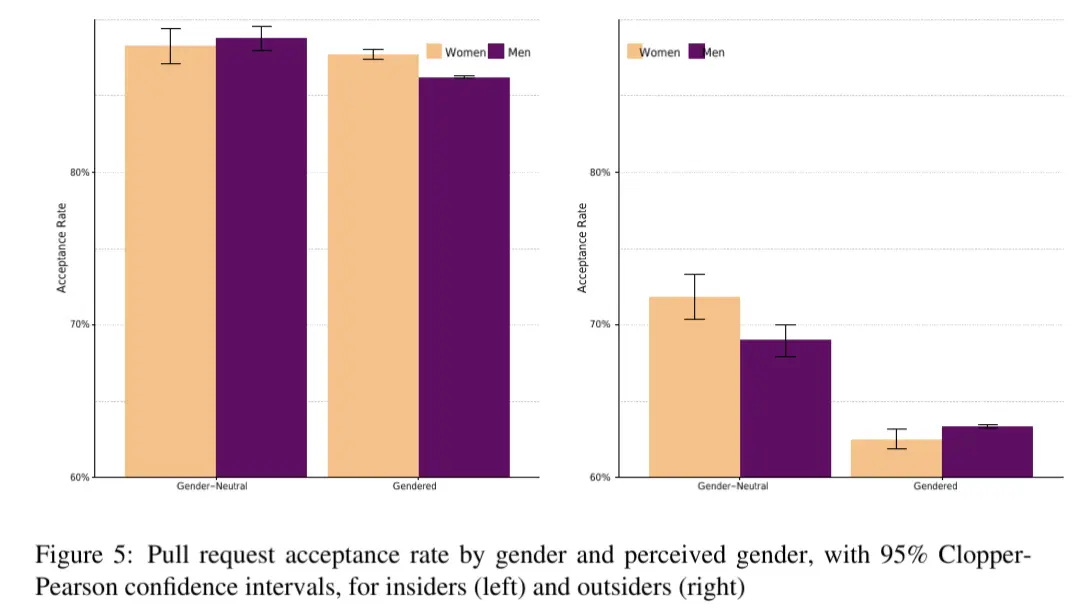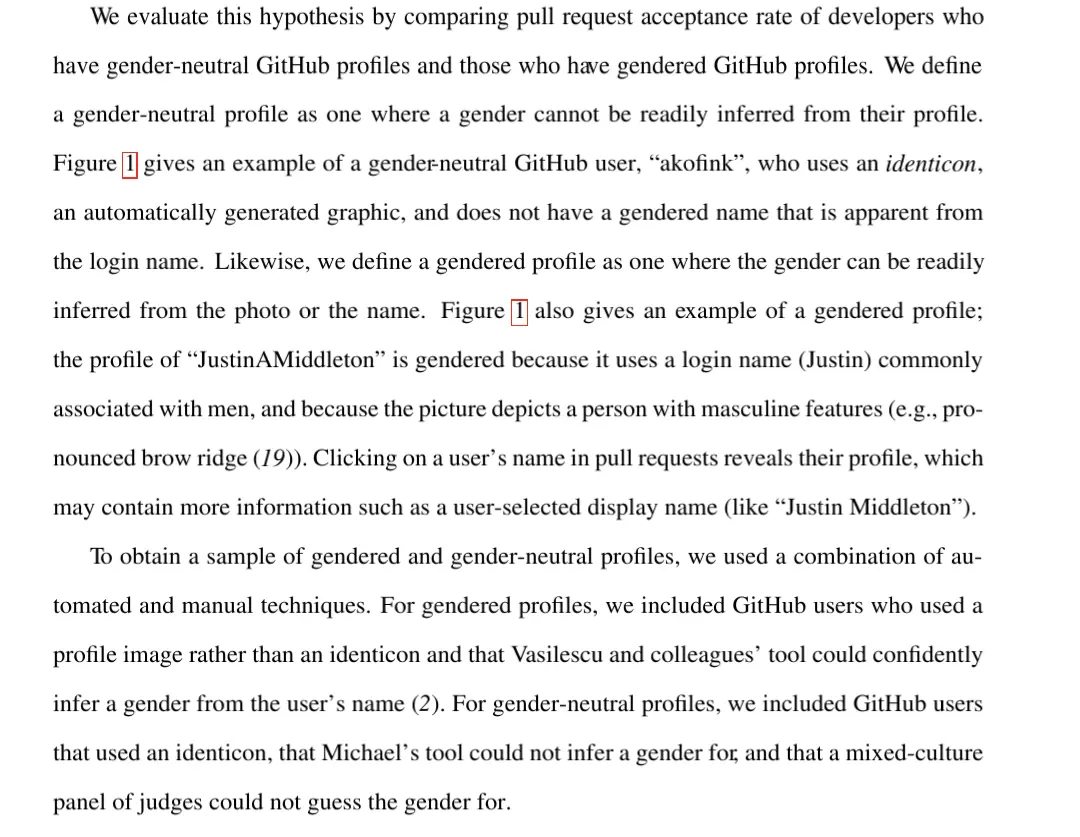Our results show that women’s contributions tend to be accepted more often than men’s [when their gender is hidden]. However, when a woman’s gender is identifiable, they are rejected more often. Our results suggest that although women on GitHub may be more competent overall, bias against them exists nonetheless.
They didn’t use very comprehensive research methods. Also they only used Github.
First, from the GHTorrent data set, we extract the email addresses of GitHub users. Second, for each email address, we use the search engine in the Google+ social network to search for users with that email address. Third, we parse the returned users’ ‘About’ page to scrape their gender.
a bias against men exists, that is, a form of reverse discrimination.
How is it reverse discrimination. It’s still plain old discrimination. I’m starting to smell a biased research here. Or at least the researchers have a bias.
Clearly discrimination is only against woman thus reverse discrimination is against man. /s
Anyone found the specific numbers of acceptance rate with in comparison to no knowledge of the gender?
On researchgate I only found the abstract and a chart that doesn’t indicate exactly which numbers are shown.
edit:

Interesting for me is that not only women but also men had significantly lower accepance rates once their gender was disclosed. So either we as humans have a really strange bias here or non binary coders are the only ones trusted.
edit²:

I’m not sure if I like the method of disclosing people’s gender here. Gendered profiles had their full name as their user name and/or a photography as their profile picture that indicates a gender.
So it’s not only a gendered VS. non-gendered but also a anonymous VS. indentified individual comparison.
And apparantly we trust people more if we know more about their skills (insiders rank way higher than outsiders) and less about the person behind (pseudonym VS. name/photography).
Thanks for grabbing the chart.
My Stats 101 alarm bells go off whenever I see a graph that does not start with 0 on the Y axis. It makes the differences look bigger than they are.
The ‘outsiders, gendered’ which is the headline stat, shows a 1% difference between women and men. When their gender is unknown there is a 3% difference in the other direction (I’m just eyeballing the graph here as they did not provide their underlying data, lol wtf ). So, overall, the sexism effect seems to be about 4%.
That’s a bit crap but does not blow my hair back. I was expecting more, considering what we know about gender pay gaps, etc.




